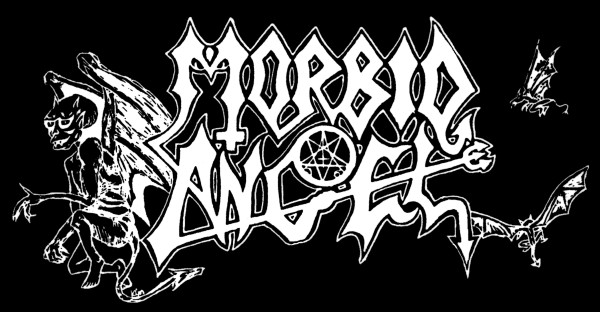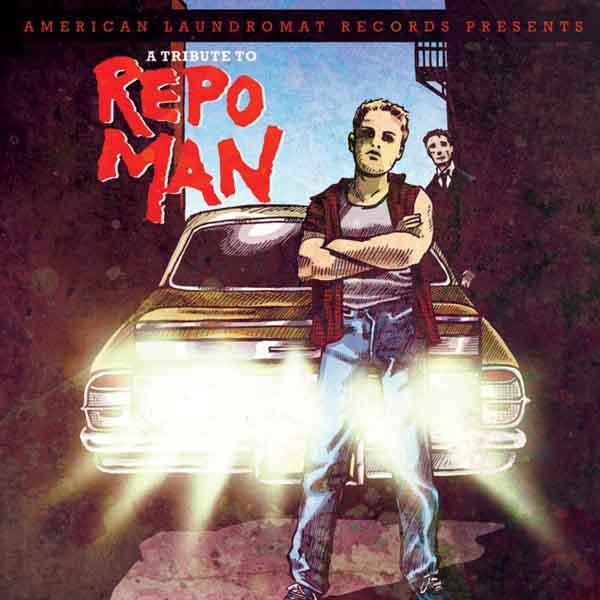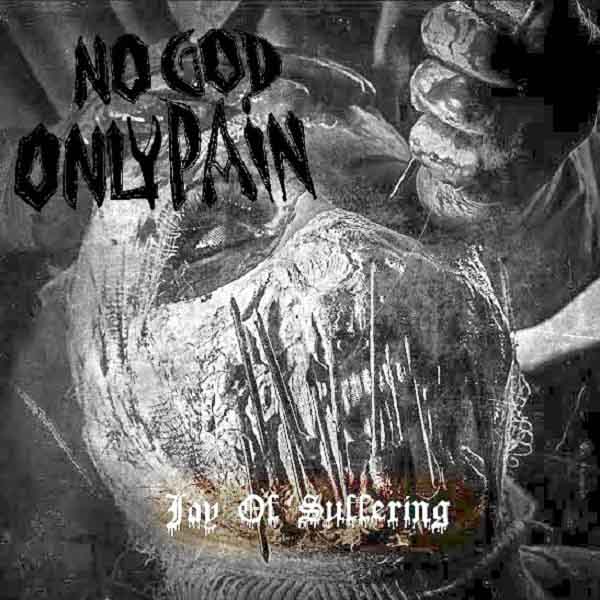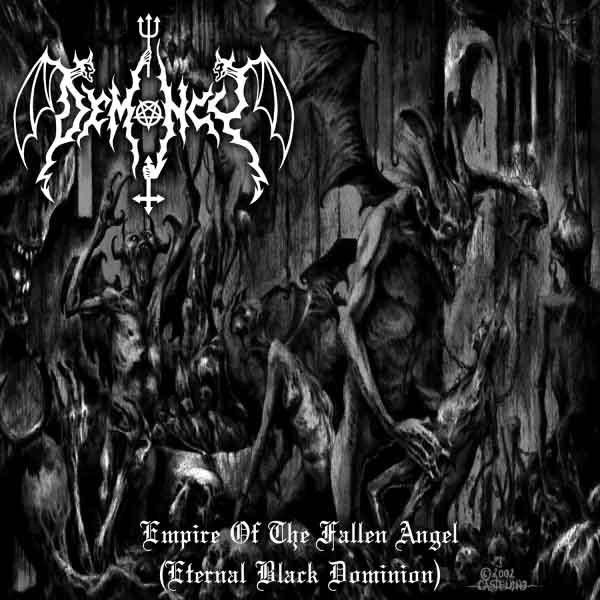
As mentioned in our first article on the topic, the “first album” from Morbid Angel remains a vague category because the band recorded two first albums, each given a name starting with the letter A which fits into the alphabetical sequence to which their albums have conformed to this day. We took a few moments to speak to original drummer/vocalist Mike Browning (Nocturnus, After Death) about Abominations of Desolation versus Altars of Madness as the true first album of this essential band…
You were one of the original players on Morbid Angel’s Abominations of Desolation (referred to as AOD), which was released before most of the publicly acknowledged death metal classics. What was the band lineup for AOD? How does it feel to have participated in such a historic and musically intense recording?
The line-up on the AOD album was:
- Mike Browning -‐ drums and vocals
- Trey Azagthoth -‐ guitar
- Richard Brunelle -‐ guitar
- John Ortega -‐ bass
At the time back in 1986 everything was just still called metal and it didn’t matter if you were more on the death or power metal side, it was still all considered Metal and the Metal crowd was unified and everyone got along for the most part, so to us back then we were just recording another new metal album and we weren’t concerned with being the fastest or the heaviest, we just did our own thing and kept it as original as possible. Back then the main thing was to be real and not fake in what we were doing.
Was it intended to be the first Morbid Angel album? How do you know? Was this fact …inconvenient… for anyone?
It still amazes me that this is even questionable, but here is the thing, we were offered a RECORD CONTRACT to record an ALBUM under the name MORBID ANGEL by Goreque Records, a label owned by David Vincent and his partner Mark Anderson. We signed the contract and Bill Metoyer of Metal Blade producer/engineer that recorded and mixed more albums than I can even think of, was hired to engineer the album.
So Goreque Records rented us a UHaul truck and we packed up our gear and went to a studio in Charlotte, North Carolina. We were furnished with hotel rooms and I met David Vincent and Mark Anderson for the first time face to face and the next day we started to record the album, after about 5 or 6 days there we were finished with the recording and David Vincent sent all of us but Trey back to Tampa and kept Trey there by himself for the mixdown, little did the rest of us know that the whole time David Vincent was really brainwashing Trey and telling him how bad the album was and that he should quit the band and come join his band. When Trey came back from the mixing, he acted like a completely different person and everything went downhill from there.
What was the reaction to its release at the time (1986) and five years later in 1991?
Well that is the thing, the album never got released because I ended up catching Trey with my girlfriend and I beat him up for it and that was the end of me being in Morbid Angel because Trey and Richard moved from Tampa to Charlotte and did get in a band with David and his drummer Wayne Hartsell. I know that John Ortega had a copy of a rough mix that we had at the point that we all left to go back to Tampa, so when Trey got back he said that David Vincent told him that the bass playing was so bad on the album that we had to fire John Ortega if we wanted the album to still come out on his label and replace him with Sterling Scarborough, we didn’t even know who Sterling was, but again it was David’s idea for us to replace Johnny with Sterling, so Trey did it and the band only lasted a couple months once this happened.
When [AOD] came out in 1991 I think it confused a lot of people as to what it was because there was no information or pictures as to who was actually playing on the album, except for a couple of lines in the front right corner of the cover that said it was AN ALBUM that was recorded in 1986, but never released, so even on the Earache version it says that it was an unreleased album, not a demo, it just also didn’t give any info on who was on it!
When did Morbid Angel decide to record Altars of Madness (referred to as AOM), and what were the changes between songs on that album and AOD?
I guess about two years later, so they had two years to actually work on most of those same songs and make them tighter and faster, they only changed a few words here and there to most of them and a lot of the drum parts were similar only faster.
When Earache released AOD, did they make any changes to the original recording?
I really don’t think they did, of course it never really got released back in 1986, so there is nothing to compare it to except the rough mix that John Ortega had and released as a bootleg.
Who is Sterling von Scarborough?
John Sterling Scarborough was his real name, but he went by Sterling Von Scarborough. He was a bass player from Atlanta that had a band called Incubus and David Vincent knew him and told Trey that we had to replace John Ortega, so he recommended Sterling and so Sterling came to Tampa and tried out for us and became our bass player. He was never on the AOD recording and he joined the band after we recorded the AOD album. We only did one live show with him at a place called The Volley Club in 1986 and Ammon (now Deicide) opened for us that night. Unfortunately that show was never recorded and it was the last show I ever played with Morbid Angel as well.
Why do you think Earache released AOD in 1991, five years after it was originally recorded? Why do you think they chose to claim AOM as the first album instead of AOD?
From what I heard was that they released AOD in 1991 to stop all the bootleg versions of it that were being made, from that one tape that Ortega had, all the bootlegs of it were made from that, so generation after generation they got sounding worse and worse. Earache and David and Trey made a deal to release the AOD album because David had the master reels, so he sold them to Earache and they gave Trey some money as well and they released it to stop the bootlegging.
Funny thing was I was on Earache Records at the time in Nocturnus and they never even told me that they were putting it out, I didn’t even find out about it until after it was already out and in the stores. That album has, guitar, bass, drums and vocals and I am doing 2 of those 4 things and I was never even told that it was gonna be released!
Did Morbid Angel take a different compositional (choice of notes, not production or vocals) direction with AOM versus AOD? Why did they do that? What did the original direction offer that the new one did not?
Well it was a couple years later that they had quite a bit of time to work on those songs and a few more and with everything but the guitar being new, of course it was going to have a new and different sound, especially when you change vocalists. And if you notice, David tries to sing a lot more like me, but he gave that up and went for a completely different style on Blessed Are The Sick. They also had a big budget and recorded the album in Morrisound which is a studio known for Metal, that studio that we recorded AOD in was actually some kind of a country music recording studio, so the guys that ran that place had never even had any type of metal band even in there before, so of course you are gonna have a huge difference in the production because of those things alone.
Rumor has it that you formed a band named “Ice” with Trey Azagthoth, pre-Morbid Angel. Wow… a moment in death metal history! What did you want to do with that band, and what was inspiring you at that moment?
Trey and I met in high school back in 1981 and I even remember his mom buying him his first guitar, a wood colored Gibson SG and we started jamming together in my mom’s back room of my house, so we put a little high school band together and even played the high school talent show. It was literally the beginning of what would become Morbid Angel.
I find that musical “inspiration” extends beyond other albums, but includes them. Were there any non‐musical experiences, books, ideas, plays, movies, thoughts, etc. that influenced you, and how did they parallel what you found in the music that influenced you?
Both Trey and I were into the occult, so when he moved into my area of Tampa and started going to school at my school and we met and started talking about what we were both into and we both were musicians that liked the occult and most especially we were both into a book called The Necronomicon and we really believed every bit of that book was true and real, so we decide to put a band together that was based on music that would please these Sumerian Gods that were in The Necronomicon. We were totally serious about what we were doing and the whole purpose of the band was to make music that would bring forth these Ancient Ones back to the Earth.
Did you and other members of Morbid Angel meet in high school, as is the rumor? Where was that? What was it like (hell?) and how did that help you bond?
It was only Trey and I as far as that ended up in Morbid Angel that knew each other in high school. Morbid Angel itself started around 1984 with me, Trey and Dallas Ward on bass.
The High School we went to was called HB Plant High school and it still is in South Tampa, there was an area where all the cool cigarette smokers and hippy type people hung out at the high school called The Alley and everyone would hang out there before school and at lunch and we met there and would always talk about music and The Necronomicon.
As “Ice,” what kind of material did you play? What songs did you cover? How did they mold your style? What was your practice schedule like? Did this influence how Morbid Angel did things later?
We really only played cover songs at first, like Judas Priest and Scorpions and Black Sabbath, because there was no Slayer or Celtic Frost or even Hellhammer yet back then. We did start messing around with some original stuff, but when I graduated from high school, Trey moved again at that time to the North end of Tampa, so for probably a good 6 months I didn’t even see him, so I started jamming with some other guys playing metal covers and Trey met Dallas and Charles, a singer and they had a drummer that was older than all of them and he lived in another town north of Tampa and he only came into town on some weekends to jam with them, so when I started talking to Trey again I decided to quit the cover band and start playing with Trey and these new guys Dallas and Charles and they already had a name for the band and it was called Death Watch. The singer got arrested and went to jail, so that is when we became a three-piece and Dallas was singing and we called the band Heretic, but we quickly found out that there was already another Heretic, so that’s when we finally became Morbid Angel.
How do you conceptualize death metal? Was progressive rock an influence? What about classical or jazz?
I don’t really think most of the music I have done was only considered to be death metal, because it had a lot of different elements to it, especially with Nocturnus. But I would say that death metal is a very heavy, fast and aggressive type of music with lyrics mainly focused on death, gore and a lot of anti-Christian themes. For me progressive rock has always been an influence, I really liked Rush when I was in high school and they were about as progressive as you could get back then. I also liked classical because I had been in the school band, from grades 6-‐10 playing percussion, so I learned to play all kinds of percussion like tympanis and bells playing classical and marching band music. I never really got into the jazz style of music, although I wish I had now, because jazz has some of the most amazing drummers and really off timing drum parts.
Your musical style is both highly proficient and idiosyncratic. How did you learn to play? What deepened your understanding of music? How important was the rising death metal scene in changing how you understood music?
It started even before that though because my mom had a 70s rock band that she sang for and they used to practice in the same back room that Trey and I ended up practicing in and I was only about 9 or 10, so I used to sit back there and watch them rehearse and I always liked watching the drummer play the most, so when they offered band when I got in 6th grade I wanted to take the drums of course!
Playing that style of music like marching band and classical stuff and also seeing my mom play in a band really gave me the early understanding of what it was like to play music and be in a band. I was into bands like Led Zeppelin and Styx when I first started and then I got into heavier stuff like Black Sabbath and Deep Purple and then Judas Priest and Iron Maiden and from there I discovered Slayer, Venom Mercyful Fate, Hellhammer and I wanted to be in a band like that, but I also wanted to be different, I have never been into copying anyones style and being like someone else, so I guess why even today I still kind of just do my own thing whether it makes money or not has never been a concern to me, I only play music because I get enjoyment out of it and if other people like what I do, then that is awesome to me!
How was AOD recorded? It sounds rough but preserves the texture of the instruments, instead of trading detail for loudness and polished sound like AOM. What made you choose to record it this way?
Back when we recorded AOD in 1986, we really didn’t know much about recording or what equipment was best for recording, so even though we went into a real professional 24 track studio, we still weren’t that prepared to do a well polished album. I had only been singing a couple months and some of the songs were just put together and we were also under a time constraint because we were in another state recording in an unfamiliar place and we only had so much studio time to get it all done.
If we had better equipment and more knowledge on recording, it probably would have sounded much better, but we were just a bunch of crazy kids with a record contract! I was also never included in the mixdown of the music, so all I got to hear was pretty much the raw unmixed tracks until Trey came back with the album mixed and finished. At least the album has a certain energy to it that was still able to come through, even with all the problems that we did have.
Can you tell us about your current projects, such as (but not limited to!) Afer Death 666? How are these efforts different from typical death metal, AOD and AOM? If people want to find out more about what you’re up to these days, where should they go?
Right now I have 2 bands with the same members in both bands, one is Nocturnus AD, which is a continuation of what I wanted to do with Nocturnus after we recorded The Key in 1990, it is much more technical sci-fi stuff than what is on AOD and it has keyboards and it is tuned in E-flat which is what Nocturnus was tuned in back in 1987‐1992 and the other band is just called After Death and as I mentioned it does have the same members, but After Death is a little heavier on the occult side of things and the music is less technical and more atmospheric and tuned in D.
The thing I keep up with most is my Facebook page, which is just under Mike Browning and it has the most up to date info on it, but we also have Facebook pages for Nocturnus AD and After Death and we also have a website www.afterdeath666.com , which has info for both bands on the site.
http://www.youtube.com/watch?v=L2EAo90fGzE
http://www.youtube.com/watch?v=6mfvSSl9L9M
11 CommentsTags: 2015, death metal, metal history, mike browning, morbid angel










